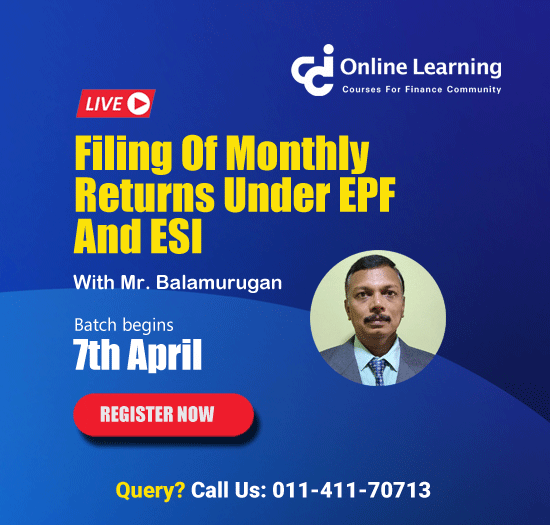Appellate Authority has the discretion to allow an appeal presented after the expiry of the limitation period
Last updated: 27 March 2024
Court :
Calcutta High Court
Brief :
The Hon'ble Calcutta High Court in the case of Arvind Gupta v. Assistant Commissioner of Revenue State Taxes [Writ Petition Application No. 2904 of 2023 dated January 04, 2024], held that the Appellate Authority has the discretion to allow an appeal to be presented within one month after expiry of the period of limitation stipulated from the date of communication of the order upon sufficient cause being shown as per Section 107 (4) of the Central Goods and Services Tax Act, 2017 ("the CGST Act").
Citation :
Writ Petition Application No. 2904 of 2023 dated January 04, 2024
The Hon'ble Calcutta High Court in the case of Arvind Gupta v. Assistant Commissioner of Revenue State Taxes [Writ Petition Application No. 2904 of 2023 dated January 04, 2024],held that the Appellate Authority has the discretion to allow an appeal to be presented within one month after expiry of the period of limitation stipulated from the date of communication of the order upon sufficient cause being shown as per Section 107 (4) of the Central Goods and Services Tax Act, 2017 ("the CGST Act").
Facts
Arvind Gupta ("the Petitioner") filed an appeal before the Senior Joint Commissioner of Revenue, the Appellate Authority("the Respondent"). The Petitioner had mentioned in the annexure to FORM GST APL-01 the period of delay and the reasons for filing the appeal petition beyond the statutory period of limitation:
a. The Petitioner was suffering from carcinoma maxilla.
b. During July2023 he went to Apollo Hospital, Delhi for his treatment (Prescription enclosed).
c. He had to frequently visit Doctors in Delhi for his precarious health condition.
However, the Respondent passed an Order dated October 30, 2023 ("the Impugned Order") and rejected the appeal on the ground of delay upon holding that there is no scope under the provisions of the West Bengal Goods and Services Tax Act, 2017 ("the WBGST Act") read with the corresponding Chapters and Sections of the CGST Act forcondoning the delay in submitting the appeal beyond four months.
Hence, aggrieved by the Impugned Order, the present writ petition was filed by the Petitioner.
Issue
Whether the Appellate Authority hasthe discretion to allow an appeal to be presented within one month after the expiry of the limitation period?
Held
The Hon'ble Calcutta High Court in Writ Petition Application No. 2904 of 2023¬¬¬¬¬¬¬¬ held as under:
- Relied on, the Hon'ble Division Bench in the matter of S.K. Chakraborty v. Union of India & Ors. (MAT 82 of 2022) where the Bench held thatthe provisions of Section 5 of the Limitation Act, 1963 have not been expressly or impliedly excluded by Section 107 of the CGST Act under Section 29(2) of the CGST Act. Therefore, Section 5 of the Limitation Act, 1963 stands attracted. Hence, the Respondenthas the discretion to allow an appeal to be presented within one month after the expiry of the period of limitation stipulated from the date of communication of the order upon sufficient cause being shown as per Section 107 (4) of the CGST Act.
- Observed that, it was well within the power of the Respondent to consider the prayer of the Petitioner for condonation of delay. The Impugned Order passed by the Respondent that there is no scope to condone the delay beyond four months suffers from infirmity.
- Noted that, the delay was evident from the annexure to FORM GST APL-01 and the Petitioner was prevented by sufficient cause for not preferring the appeal within the statutory period.
- Held that, the Respondent failed to exercise its jurisdiction.The delay in presenting the appeal before the Respondent was condoned.The Respondent was directed to consider the appeal on merit and decide the same in accordance with law upon giving an opportunity of hearing to the Petitioner.






 CAclubindia
CAclubindia

